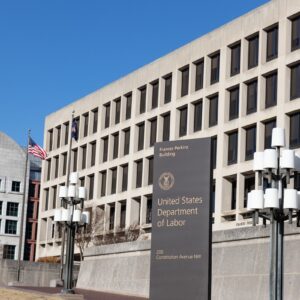 “We Do Not Believe the Proposal Can or Should Be Fixed”
“We Do Not Believe the Proposal Can or Should Be Fixed”
WASHINGTON, D.C. – A proposed U.S. Department of Labor (DOL) regulation on investment advice will cause extensive harm to lower- and middle-income consumers and should be withdrawn, according to the Insured Retirement Institute (IRI), which filed comments on the proposal today.
“In an age when saving and preparing for retirement is squarely on the shoulders of individuals, financial professionals have an important part in helping their clients develop retirement plans and grow their savings,” said Wayne Chopus, President and CEO at IRI. “As currently formulated, the DOL proposal will deprive lower- and middle-income consumers of access to affordable assistance with retirement planning.”
In IRI’s extensive comment letter to the DOL, the association criticized the proposal as a “solution in search of a problem” that “flies in the face” of a 2018 Fifth Circuit Court of Appeals decision to vacate a similar DOL rule promulgated in 2016.
“We are not requesting, recommending, or proposing modifications to any of the components of the proposal,” Chopus said. “We do not believe the proposal can or should be ‘fixed,’ and nothing in this letter should be read to suggest or imply that IRI would support a modified version. Instead, our comments are intended to explain the myriad reasons why the Department should withdraw the proposal and discontinue this regulatory project entirely.”
According to a 2017 Deloitte study[1], the 2016 rule caused 10.2 million retirement account holders who collectively held $900 million in savings to lose access to their financial professionals.
Furthermore, the proposal ignores the current enhanced regulatory framework provided under the U.S. Securities and Exchange Commission’s (SEC) Regulation Best Interest (Reg BI) and the National Association of Insurance Commissioners’ (NAIC) best interest model regulation, adopted in 41 states. DOL did not provide evidence that the current regulatory framework is not working.
IRI has long supported the application of a best interest standard to firms and financial professionals who provide advice or recommendations about insurance or investment products to retirement savers. IRI believes the vast majority of firms and financial professionals already act in the best interest of their clients and that the existing regulatory framework provides the necessary protections to maintain this standard.
IRI noted further that the proposal fails to account for the benefits and costs associated with protected lifetime income guarantees that annuities provide.
“Throughout the proposal, the Department repeatedly conflates annuities and other insurance products with mutual funds, other securities products, and other non-securities products such as real estate and commodities,” added Jason Berkowitz, Chief Legal and Regulatory Affairs Officer at IRI. “This ignores the intrinsic value of insurance guarantees of safety and security, as well as the added time and work needed for a financial professional to fully understand annuity products and how they should and should not be used and to convey that information to their clients effectively.”
IRI also took aim at DOL’s characterization of its proposed regulation as requiring financial professionals to act in clients’ best interests when, in fact, the Employee Retirement Income Security Act (ERISA) requires a “sole interest” standard.
IRI said the more stringent sole interest standard is unworkable in the context of business models that pay compensation based on completed transactions rather than the provision of advice. According to IRI, by improperly and inaccurately conflating ERISA’s sole interest standard with the best interest standard imposed under Reg BI and NAIC’s best interest model regulation, DOL and supporters of the proposal have exacerbated the risk of confusion regarding the different standards that apply in different circumstances.
“We respectfully suggest that the Department should reevaluate its priorities and focus on enforcement of existing rules and implementation of new Congressional directives such as SECURE and SECURE 2.0 rather than continuing to divert its limited resources to this unnecessary and dangerous rulemaking project,” IRI wrote.
# # #
[1] Deloitte, The DOL Fiduciary Rule: A study on how financial institutions have responded and the resulting impacts on retirement investors (August 9, 2017), available at https://www.sifma.org/wp-content/uploads/2017/08/Deloitte-White-Paper-on-the-DOL-Fiduciary-Rule-August-2017.pdf (the “Deloitte Report”).
Contact: Dan Zielinski
Stay Informed
Latest News
June News Articles
News articles in which IRI is mentioned or quoted. Plan Sponsor – Retirement Industry People Moves Insurance News Net –…
CONGRESS PRESERVES TAX DEFERRAL OF RETIREMENT SAVINGS
One Big Beautiful Bill Act Sent to President for Signature WASHINGTON, D.C. – Congress preserved tax deferral of retirement savings…
SENATE PRESERVES VITAL RETIREMENT SAVINGS INCENTIVE
WASHINGTON, D.C. – The U.S. Senate today passed the One Big Beautiful Bill Act, a tax and budget reconciliation measure…